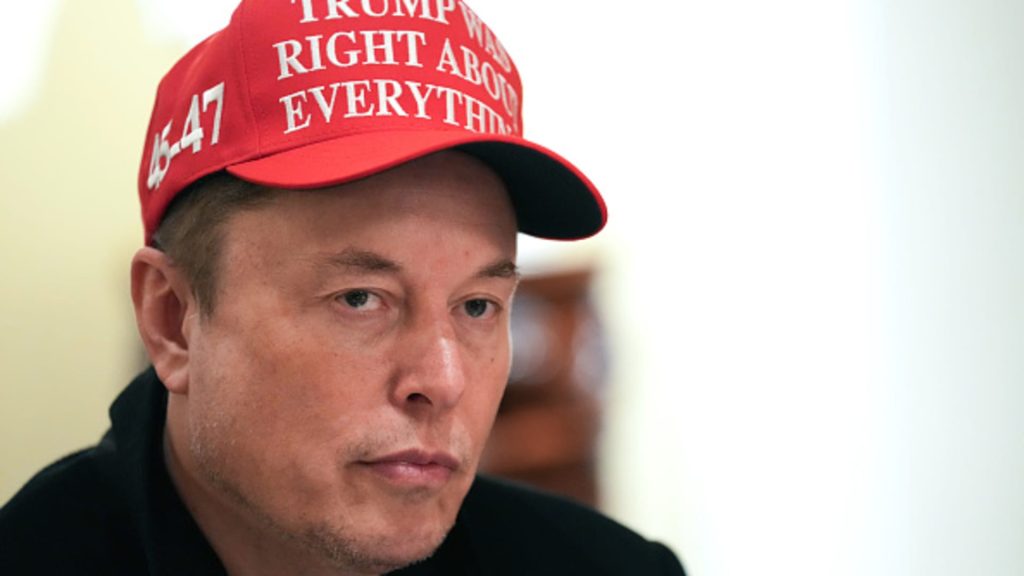Recent surveys highlight growing discontent among the public and investors towards Tesla and its CEO, Elon Musk. With over 47% expressing negative views about the electric vehicle manufacturer, contrasting sharply with consumer opinions about competitors like General Motors, there seems to be an increasing disconnect between the brand and its potential customer base. Factors contributing to Tesla’s image crisis include Musk’s political activities and perceptions surrounding electric vehicles (EVs) among diverse demographic groups.
| Article Subheadings |
|---|
| 1) Tesla’s Dwindling Popularity |
| 2) Polarizing Figures: Elon Musk Under Fire |
| 3) The Electric Vehicle Landscape |
| 4) Survey Insights and Statistics |
| 5) Future Implications for Tesla |
Tesla’s Dwindling Popularity
The recent survey conducted from April 9 to April 13 revealed alarming trends about Tesla’s standing in the market. According to survey results, 47% of the American public hold a negative view of Tesla, with only 27% expressing positivity toward the company and 24% remaining neutral. This data presents a stark contrast when compared to General Motors, which enjoys a more favorable perception among the public, as evidenced by the fact that about one third of respondents view GM positively, with 51% neutral and just 10% negative. Such sentiments exhibit a potentially severe erosion of Tesla’s brand loyalty and consumer support, which have been pivotal to its success as a leading electric vehicle manufacturer.
Polarizing Figures: Elon Musk Under Fire
At the core of these negative perceptions is Elon Musk, the company’s CEO, who is depicted as a highly polarizing figure. Survey results indicate that 50% of respondents view Musk negatively, while 36% hold a positive view, leaving only 16% neutral. The political affiliations of respondents further emphasize this divide; Musk’s net approval rating stands at an alarming -82 among Democrats and -49 among independents, whereas Republicans see him more favorably at +56. This division raises significant concerns about Musk’s controversial political activities and statements that may have further alienated sections of the consumer base. As protests at Tesla offices result from these concerns, it highlights that political alignment and social influence strongly correlate in public perception.
The Electric Vehicle Landscape
Interestingly, despite the negative outlook toward Tesla, perceptions of electric vehicles themselves appear more promising. The survey indicates that 33% of Americans hold a positive view of EVs while 35% view them negatively. This paradox exposes a potential disenchantment among those who are enthusiastic about the broader idea of EVs but remain skeptical when it comes to Tesla specifically. Men tend to have a +11 net approval for EVs, though their sentiments towards Tesla are more ambivalent. Conversely, younger individuals in the 18-34 age bracket display a pronounced +19 approval for EVs but have a starkly negative perception of Tesla at -23. Furthermore, the disparity among demographics, particularly the discrepancy where Democrats have a positive sentiment on EVs yet hold a strongly negative stance towards Tesla (-74), indicates that the company risks missing out on potential customer bases that are otherwise aligned with the growing trend toward electric transportation.
Survey Insights and Statistics
The survey, which involved 1,000 participants from across the United States, was conducted with a margin of error of +/-3.1%. It serves not just as a snapshot of public sentiment toward Tesla and its leader but also reflects broader societal trends regarding electric vehicles and technology. The report suggests that while Tesla has historically maintained a reputation for innovation and prestige, the recent turn of events can be attributed to Musk’s actions and the resulting disconnect with potential buyers.
“Where Tesla is strongest is among the people least likely to buy an EV,”
noted Micah Roberts, a partner at Public Opinion Strategies, emphasizing how consumer foundations may not align with the company’s current direction and leadership.
Future Implications for Tesla
The challenges confronting Tesla could have extensive implications for its market strategy moving forward. The disconnect between positive perceptions of electric vehicles and discontent toward Tesla suggests a need for the company to reassess its branding and outreach initiatives. As Tesla faces declining stock value amid external economic pressures, recalibrating its approach could prove imperative for retaining consumer interest. By fostering dialogue with potential buyers and addressing their concerns directly, Tesla can attempt to revive its reputation. Knowledge from this survey presents an opportunity for Tesla to constructively engage with diverse demographic groups while potentially improving its overall market position.
| No. | Key Points |
|---|---|
| 1 | Over 47% of Americans view Tesla negatively. |
| 2 | Elon Musk is viewed negatively by half of the survey respondents. |
| 3 | Positive perception of EVs exists, with a 33% approval rate. |
| 4 | The survey was conducted with 1,000 participants nationwide. |
| 5 | Future strategies for Tesla may include reevaluation of its branding and communication. |
Summary
In conclusion, the survey points to significant challenges facing Tesla and Elon Musk, as public sentiment continues to skew negatively. Potential risks of alienating customers due to political controversies and disconnect from the varied views on electric vehicles warrant a serious reevaluation of Tesla’s future strategies. The opportunity to bridge the divide between the company’s brand and the public’s evolving attitudes presents a crucial avenue for restoring its image and securing its position in the increasingly competitive EV market.
Frequently Asked Questions
Question: What were the survey dates and sample size?
The survey was conducted from April 9 to April 13, involving 1,000 participants nationwide.
Question: What percentage of respondents have a negative view of Tesla?
According to the survey, 47% of Americans hold a negative view of Tesla.
Question: How do political affiliations affect perceptions of Elon Musk?
Surveys show that Democrats view Musk negatively, with a net approval of -82, while Republicans view him positively at +56.
